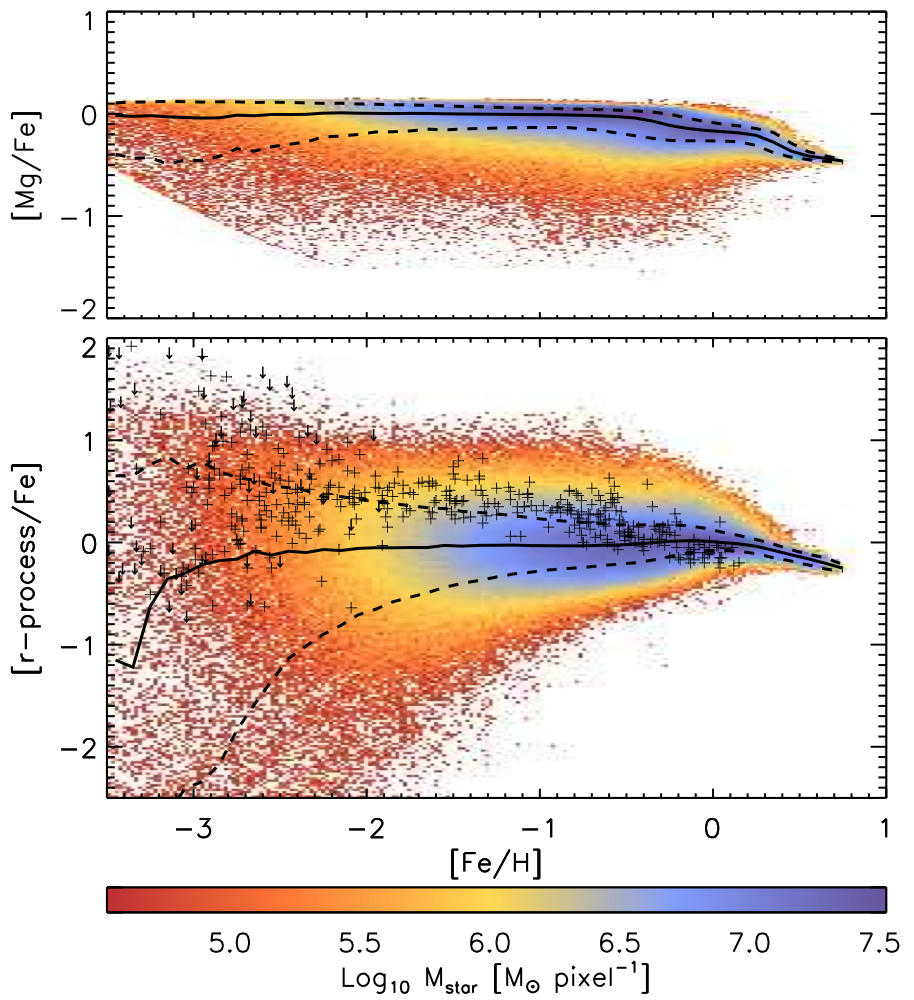In a new paper (van de Voort et al.), available on the arXiv, we use simulations of a Milky Way-mass galaxy from the FIRE project to study the origin of r-process elements. These are the first cosmological simulations in which r-process elements are self-consistently advected by the fluid. Contrary to previous findings from more approximate semi-analytic models, we find that neutron star mergers may produce the majority of the r-process nuclei in the Universe.
Abstract: We quantify the stellar abundances of neutron-rich r-process nuclei in cosmological zoom-in simulations of a Milky Way-mass galaxy from the Feedback In Realistic Environments project. The galaxy is enriched with r-process elements by binary neutron star (NS) mergers and with iron and other metals by supernovae. These calculations include key hydrodynamic mixing processes not present in standard semi-analytic chemical evolution models, such as galactic winds and hydrodynamic flows associated with structure formation. We explore a range of models for the rate and delay time of NS mergers, intended to roughly bracket the wide range of models consistent with current observational constraints. We show that NS mergers can produce [r-process/Fe] abundance ratios and scatter that appear reasonably consistent with observational constraints. At low metallicity, [Fe/H]<-2, we predict there is a wide range of stellar r-process abundance ratios, with both supersolar and subsolar abundances. Low-metallicity stars or stars that are outliers in their r-process abundance ratios are, on average, formed at high redshift and located at large galactocentric radius. Because NS mergers are rare, our results are not fully converged with respect to resolution, particularly at low metallicity. However, the uncertain rate and delay time distribution of NS mergers introduces an uncertainty in the r-process abundances comparable to that due to finite numerical resolution. Overall, our results are consistent with NS mergers being the source of most of the r-process nuclei in the Universe.
